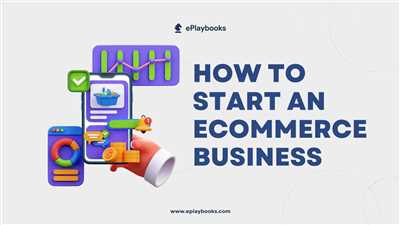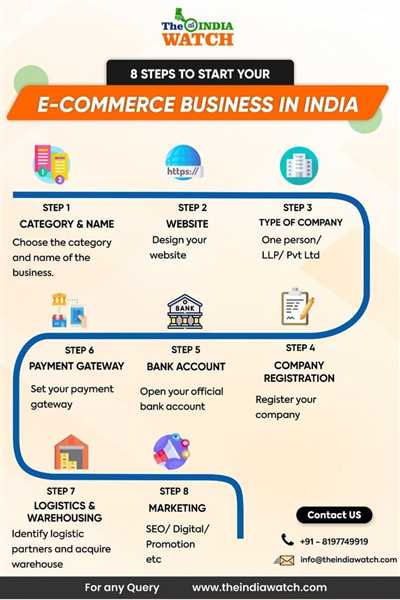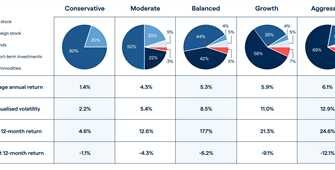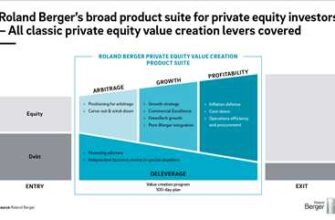
Are you looking to start an ecommerce business but don’t know where to begin? Want to grow your business, offer better items, and provide a top-notch shopping experience for your customers? Look no further! We have the ultimate solution for you!
By taking an example from successful ecommerce companies like Amazon, you can identify the strategies that have brought them success and apply them to your own business. Perhaps you’re finding it hard to decide on a niche for your company. Don’t worry – narrowing down your audience and offering specific products can actually be a great advantage. In fact, it’s one of the key decisions that can lead to higher profits.
When setting up your ecommerce business, it’s important to consider your inventory and shipping process. A company like ours can help you with that! We have created a cost-effective and efficient process for shipping items, so you don’t have to worry about the logistics.
Furthermore, by utilizing the power of social media and online marketing, you’ll be able to reach a wider audience and compete with other retailers. A strong presence on social media platforms can make all the difference in attracting customers and building your brand.
So, don’t wait any further! Take the first step towards ecommerce success and start your own online business with our help. With our expertise and experience in the industry, we can guide you through the entire process and help you make the right decisions for your business. Your success is our success!
Remember, in the world of ecommerce, specificity is key. Don’t be afraid to offer unique and specialized products that your customers won’t find anywhere else. This will set you apart from your competitors and make your business truly stand out.
So why wait? Start your ecommerce business today and watch your profits grow!
- How to Start an E-Commerce Business
- Choose your eCommerce niche
- Narrowing down your eCommerce niche
- Solve a Problem
- Choose Your Product Line
- Frequently Asked Questions
- How do I start an eCommerce business
- How much does it cost to start an eCommerce business
- How do I succeed in eCommerce
- What is eCommerce in simple words
- Is it hard to start e-commerce
- Which e-commerce is most profitable
- How do I start an eCommerce brand
- Videos:
- How to Start Ecommerce Business for Beginners – TOP 5 Ecommerce Platforms
How to Start an E-Commerce Business
Starting an e-commerce business can be an exciting and profitable venture. With the right planning and strategy, you can create a successful online store that sells a variety of products, from cosmetics to clothing.
The first step in starting an e-commerce business is to decide what type of products you want to sell. Do some research to identify popular items that people frequently buy, and find a niche market that you can target. For example, if you enjoy fitness, you could focus on selling protein supplements and workout clothing.
Once you have decided on the products you want to sell, the next step is to build a website. This will be your online storefront, so it needs to be visually appealing, user-friendly, and easy to navigate. Consider hiring a website design company or using a website builder service like Shopify to help you with this process.
After your website is up and running, you will need to consider how you will handle inventory and shipping. One option is to maintain your own inventory and ship products directly to your customers. Another option is dropshipping, where a third-party supplier holds the inventory and ships products on your behalf. Consider the pros and cons of each method and choose the one that best suits your business needs.
Marketing is a crucial aspect of any e-commerce business. You need to get the word out about your products and attract customers to your website. Use social media platforms like Facebook and Instagram to promote your products and engage with potential customers. Consider running targeted ads to boost your online visibility.
Competing with other e-commerce businesses can be challenging, but there are ways to stand out from the crowd. Focus on providing excellent customer service and offering high-quality products at competitive prices. Offer incentives like free shipping or discounts for repeat customers to create value and keep customers coming back.
Managing the financial side of your e-commerce business is also important. Keep track of your profits and expenses, and be aware of any tax obligations you may have. Consider using accounting software or hiring an accountant to help you manage your finances.
As your e-commerce business grows, consider expanding your product line and exploring new markets. Take customer feedback into consideration and constantly look for ways to improve your business. Stay up to date with the latest trends and technology in the e-commerce world to stay ahead of your competitors.
Starting an e-commerce business requires hard work, dedication, and a strong entrepreneurial mindset. But with the right approach and determination, you can build a successful online business that provides you with the ultimate freedom and flexibility.
Choose your eCommerce niche
When starting an eCommerce business, one of the most important decisions you need to make is choosing the right niche. Your chosen niche will define the type of products or services you sell and the specific target audience you’ll be serving. It is crucial for your success to find a niche that fits your interests, expertise, and market demand.
But how do you go about choosing a niche within the vast world of eCommerce? Here are some steps to help you in the process:
1. Identify your passion and expertise: Look for niches that align with your personal interests and knowledge. When you choose a niche that you’re passionate about, you’ll not only enjoy the work but also have a better understanding of the market and its consumers.
2. Research market demand: Look for niches that have a high market demand but less competition. Narrowing down your options will help you target a specific audience and make an impact sooner.
3. Solve a problem or meet a need: Identify problems or needs that consumers within your chosen niche have. Create a business that addresses these issues and offers a unique solution. Providing value to your customers is key to success.
4. Consider profitability: Analyze the potential profitability of the niche you’re considering. Look at the cost of running the business, including marketing, shipping, and website maintenance, and compare it to the potential profit margins.
5. Research your competitors: Study your competitors and understand their strengths and weaknesses. Find innovative ways to differentiate yourself and offer a better experience to your customers.
6. Ask yourself key questions: What unique selling points can you offer in this niche? How can you market your products or services in a way that stands out? What are the barriers to entry in this niche? Answering these questions will help you make informed decisions and plan for success.
Remember, the more specific and targeted your niche is, the better chances you have to succeed. For example, instead of starting a broad e-commerce business that sells a wide range of products, consider focusing on an innovative niche such as eco-friendly home products or specialty pet supplies.
Take Balsam Hill as an example: This eCommerce business specializes in high-quality artificial Christmas trees and holiday decor. By narrowing down their niche to a specific holiday season and offering top-notch products, they’ve created a successful brand and a loyal customer base.
Choosing the right niche is a critical step in starting your eCommerce business. It will guide your branding, marketing, and product offerings. So take the time to research, analyze, and select a niche that fits your expertise, market demand, and personal passions. This will undoubtedly boost your chances of success and make your eCommerce journey a fruitful one.
Narrowing down your eCommerce niche
When starting an eCommerce business, it can be tempting to try and appeal to as wide of an audience as possible. However, the specificity and focus of your niche can actually be the key to a profitable online store. It’s important to drill down and ask yourself some important questions to identify the right niche for your eCommerce business.
First and foremost, you need to know your target audience. What problem or need are you trying to solve for them? Are you offering a unique value that other eCommerce sites don’t have? It’s crucial to have a clear understanding of your target audience and the value you provide to them.
Next, consider the market and competition within your chosen niche. Is there enough demand for the products or services in this space? Are there already established brands or retailers dominating this category? Research is essential in order to make sure you choose a niche that has growth potential and enough room for your own company to succeed.
Furthermore, it’s important to focus on a specific category or type of product. For example, rather than selling a wide range of cosmetics, you might narrow your niche to focus specifically on natural, organic tree-based cosmetics. By becoming an expert in this specific area, you can attract consumers who are passionate about natural skincare and are willing to pay a premium for high-quality products.
Building a successful eCommerce website also requires you to consider the logistical aspects of your business. Do you have the resources and capital to stock and manage inventory for a wide range of items, or would it be more efficient and cost-effective to focus on a narrower range of products? By starting with a focused niche, you can minimize overhead costs and optimize your operations for better profitability.
One way to narrow down your niche and boost your chances of success is to identify a gap within an existing market. For example, if you notice that there are a lot of sellers on eBay offering general cosmetics, but very few offering tree-based cosmetics, this may indicate an opportunity to fill that gap and cater to a specific segment of consumers.
In conclusion, narrowing down your eCommerce niche can be a challenging process, but it’s a necessary step towards building a successful online business. By choosing the right niche based on market research, identifying a specific category or type of product, and addressing a gap in the market, you can increase your chances of success and stand out from the competition.
Solve a Problem
One of the most important aspects of starting an Ecommerce business is identifying a problem that your target market is facing and offering a solution. By solving a problem, you not only create value for your customers, but also differentiate yourself from your competitors.
One specific problem that many people face when it comes to shopping online is the lack of personalized recommendations. With so many options available, customers often find it difficult to navigate through the vast sea of products and find exactly what they are looking for. This can lead to frustration and ultimately, a loss of potential sales.
By taking this problem into consideration, you can create an innovative solution that helps customers find the products that best fit their needs. For example, you can develop a recommendation engine that uses machine learning algorithms to analyze customer preferences and suggest relevant products. This not only streamlines the shopping process, but also increases customer satisfaction and the likelihood of making a purchase.
In addition to personalized recommendations, another problem that customers often encounter is the high cost of shipping. Many Ecommerce businesses charge expensive shipping fees, which can deter customers and result in abandoned shopping carts.
To solve this problem, you can offer free shipping for orders over a certain amount or provide a discounted shipping rate. By doing so, you not only incentivize customers to make larger purchases, but also minimize the impact of shipping costs on their overall shopping experience.
Another problem that customers frequently face is the lack of trust in online transactions. With the increasing number of counterfeit products and fraudulent websites, people are more cautious when it comes to making online purchases.
To address this problem, you can implement strict security measures on your website, such as SSL encryption and secure payment gateways. Additionally, providing customer reviews and testimonials can help build trust and credibility for your brand.
By solving these and other problems that customers encounter during their online shopping process, you can create a unique value proposition that sets your Ecommerce business apart. This not only helps attract and retain customers, but also contributes to the overall success and profitability of your venture.
Choose Your Product Line
When starting an ecommerce business, one of the first decisions you need to make is what product line to choose. This is a crucial step that can determine the success or failure of your venture. Don’t underestimate the importance of selecting the right product line, as it will greatly impact your ability to attract customers, generate sales, and make profits.
Unlike traditional retailers, ecommerce businesses have the advantage of not being limited by physical space and location. You can sell products that are not available in brick-and-mortar stores, or offer a unique twist on existing products. This opens up a world of possibilities, but it also means that you need to carefully consider your options.
Before diving further into the topic, it’s important to understand that not all products are created equal. Some products are more profitable than others, some have a larger market demand, and some require more resources or expertise to produce or source. It’s essential to conduct thorough market research and competitor analysis to identify which product line has the potential for long-term success.
When choosing your product line, there are several factors to consider:
| Existing Audience: | Consider the audience you already have or the audience you are targeting. Are there specific products they’ve asked for or expressed interest in? By offering products that solve their problems or meet their needs, you can increase your chances of success. |
| Competitors: | Research your competitors to see what products they are offering and how they are marketing them. Identify any gaps or opportunities in the market that you can capitalize on. |
| Profitability: | Some product lines are more profitable than others. Consider the profit margins, manufacturing costs, and potential sales volume when evaluating different product options. |
| Market Demand: | Is there a demand for the product you are considering? Conduct market research to understand the size of the market, the target audience, and any trends or factors that could impact demand. |
| Niche Market: | Consider targeting a specific niche market rather than competing in a broad market. By focusing on a niche, you can create a unique selling proposition and differentiate yourself from larger competitors. |
| Product Experience: | Choose a product line that you have experience or expertise in. This will make it easier for you to understand the product, communicate its value to customers, and provide excellent customer service. |
| Value Proposition: | What value does your product line offer to customers? How is it different from what is already available in the market? Clearly define your value proposition to attract customers and stand out from the competition. |
Once you have chosen your product line, you can start building your ecommerce site, setting up payment gateways, and creating product listings. Don’t forget to leverage other online marketplaces like Amazon or eBay to reach a broader audience and drive initial sales.
Keep in mind that starting and growing an ecommerce business is hard work. It requires planning, strategy, and continuous effort to succeed. There’s no ultimate formula for success, but by choosing the right product line and offering great value to customers, you can compete in the ecommerce market and create a successful and profitable business.
Frequently Asked Questions
Q: How do I start an Ecommerce business?
A: Starting an Ecommerce business requires careful planning and consideration. First, you need to decide on what type of products or services you will be selling. Narrow down your target audience and consider the needs of your potential customers. For example, if you’re planning to sell clothes, you may want to narrow it down further to a specific niche, such as Christmas-themed clothes or clothes for dogs. Once you have a clear idea of what you want to offer, you can start building your website.
Q: How can I create an innovative and value-driven Ecommerce company?
A: To create an innovative and value-driven Ecommerce company, you need to think outside the box. Consider what sets your business apart from others in the industry and focus on solving a specific problem for your customers. For example, if you’re trying to compete with Uber, you could create a company based on an innovative taxi service that includes eco-friendly cars or planting trees for each ride taken. By providing something unique and valuable, you can attract customers and build a strong brand.
Q: How do I make my Ecommerce business profitable?
A: Making your Ecommerce business profitable requires careful financial planning and smart decision-making. Consider the cost of your products or services and ensure that your prices are competitive enough to attract customers while still generating enough profits. Additionally, focus on growing your customer base and expanding your offerings. This includes considering upselling and cross-selling opportunities, offering excellent customer service, and continuously improving your processes to reduce costs and increase efficiency.
Q: What are some sources of funding for an Ecommerce business?
A: There are many possible sources of funding for an Ecommerce business. You could seek investment from venture capitalists or angel investors who are interested in supporting innovative startups. Alternatively, you could consider taking out a business loan from a bank or utilizing crowdfunding platforms to gather funds from the general public. It’s essential to research and consider the different options available to find the one that best suits your company’s needs and growth plans.
Q: How can social media help my Ecommerce business?
A: Social media can be a powerful tool for promoting and growing your Ecommerce business. It allows you to connect with your audience, build brand awareness, and engage with potential customers. You can use platforms like Facebook, Instagram, and Twitter to share information about your products or services, run targeted advertising campaigns, and interact with customers through comments, messages, and live chats. By utilizing social media effectively, you can reach a broader audience and drive traffic to your website.
Q: Do I need to register my Ecommerce business for tax purposes?
A: In most cases, yes, you will need to register your Ecommerce business for tax purposes. The specific registration requirements may vary depending on your country and local regulations. It’s important to consult with a tax professional or accountant to ensure that you comply with all relevant tax laws and regulations. Keeping your business’s financial records in order and regularly reviewing your tax obligations will help you avoid any potential issues or penalties in the future.
Q: How much does it cost to start an Ecommerce business?
A: The cost of starting an Ecommerce business can vary greatly depending on the scale and complexity of your operations. It includes expenses such as website development, product sourcing or creation, marketing, inventory, and more. Some expenses may be one-time costs, while others may be ongoing. It’s essential to create a comprehensive budget and consider all possible costs to ensure that you have enough funds to get your business off the ground and sustain it until it becomes profitable.
How do I start an eCommerce business
Starting an eCommerce business can be an exciting and rewarding venture, but it requires careful planning and strategic decision-making. In this section, we will drill down into the essential steps you need to take to set yourself up for success in the online marketplace.
First and foremost: identify a niche that you are passionate about and has a potential for growth. Choosing the right niche is crucial as it will determine your target audience and the level of competition you may face.
Once you have identified your niche, it’s time to offer something unique and valuable to your customers. The ultimate goal is to stand out from the crowd and provide a solution to their needs or problems.
One of the key decisions you’ll need to make is whether to hold inventory or use dropshipping. This will depend on your business model, your budget, and your personal preferences. Each option has its pros and cons, so weigh them carefully before deciding.
Next, it’s important to create a website that is user-friendly, visually appealing, and optimized for search engines. A well-designed website will not only attract online consumers but also help you build trust and credibility.
Marketing plays a vital role in the success of any eCommerce business. Use various marketing channels such as social media, email marketing, and content marketing to reach out to your target audience and drive traffic to your website. Remember, it’s not enough to just have a great product; you need to promote it effectively to maximize sales.
Another critical aspect of starting an eCommerce business is customer service. Provide exceptional customer service to ensure customer satisfaction and loyalty. Respond promptly to inquiries, resolve issues efficiently, and go above and beyond to exceed your customers’ expectations. Happy customers are more likely to recommend your business to others.
Successful eCommerce businesses are also constantly analyzing and optimizing their operations. Keep track of your website’s analytics, monitor customer behavior, and make data-driven decisions to improve your conversion rate and increase sales.
Lastly, remember that starting an eCommerce business is not a one-size-fits-all process. Each business is unique, and your journey to success may differ from others’. However, by following these guidelines and adapting them to your specific business needs, you are setting yourself up for a successful eCommerce venture.
How much does it cost to start an eCommerce business
Starting an eCommerce business can be a profitable and rewarding endeavor. However, it’s important to understand the costs involved in this undertaking. The amount of capital required to create a successful online store varies depending on several factors, including the type of products you plan to sell, the niche you choose, and the level of competition in the market.
One of the most significant advantages of eCommerce businesses is that they often require less startup capital compared to traditional brick-and-mortar retailers. This is because online stores don’t have to worry about expenses related to renting or buying physical retail space. Instead, the focus is on creating a user-friendly website and marketing it effectively.
The cost of building a website is one of the most crucial decisions you will make when starting an eCommerce business. It’s essential to choose a platform or hire a professional web developer who can create a site that is visually appealing, functional, and optimized for search engines. This will ensure that your customers have a seamless and enjoyable shopping experience.
If you have little experience in web development, it may be better to hire a professional who can assist you with this task. Additionally, you may need to invest in a domain name, web hosting, and security features to protect your customers’ information.
Another significant cost to consider is marketing. To compete with other businesses in the online space, you will need to invest in digital marketing strategies such as search engine optimization (SEO), social media advertising, and pay-per-click (PPC) campaigns. These methods will help you reach a broader audience, increase brand awareness, and drive traffic to your website.
It’s also important to identify your target audience and understand their specific needs and preferences. By doing so, you can tailor your products and marketing messages to appeal to them more effectively. This will help you build a loyal customer base and drive sales.
Additionally, you may need to produce high-quality product photos and descriptions to showcase your offerings effectively. This will help potential customers understand the value your products can provide. You may also need to consider the cost of inventory and shipping if you plan to store and fulfill your products.
Overall, the cost of starting an eCommerce business can vary greatly. It depends on the specific decisions you make along the way. While it’s possible to start with a small budget, it’s important to consider the long-term growth potential and invest in the necessary resources. Remember, even though starting an eCommerce business may seem simple, it requires hard work and planning to succeed.
How do I succeed in eCommerce
Starting an ecommerce business is not as simple as it may seem. There are many factors to consider when trying to succeed in this competitive field. One of the most important things is to identify a specific type of product or service that you are going to offer. By narrowing down your focus, you can better cater to the needs of your target consumers.
When setting up your ecommerce business, it is essential to have a well-designed website that is user-friendly and visually appealing. Your website should clearly highlight the products or services you offer and provide a seamless and secure online shopping experience for your customers.
Another important aspect to consider is your inventory management. You must keep track of your products and ensure that you have enough stock to fulfill orders. This will help you avoid stockouts and keep your customers satisfied.
Shipping and logistics are crucial in the ecommerce industry. You need to find reliable shipping partners and negotiate competitive rates to ensure timely delivery of your products. Customers often expect free or low-cost shipping, so offering such options can give you a competitive edge.
Customer service is another key factor in succeeding in ecommerce. Promptly respond to customer inquiries and resolve any issues they may have. Happy customers are likely to become repeat customers and can also refer others to your business.
One of the most challenging aspects of running an ecommerce business is competing with other businesses. You must stay updated with the latest trends and continuously look for ways to improve your products or services. Offering unique and high-quality items can help you stand out from the competition.
Marketing and promoting your ecommerce business is essential for driving traffic to your website. Utilize various channels such as social media, email marketing, and search engine optimization to reach a wider audience and increase your chances of making sales.
Financial management is crucial for the success of any business. Keep track of your profits and expenses, and make sure you have enough capital to support the growth of your ecommerce business. Seek sources of funding if needed.
Ultimately, the success of your ecommerce business will depend on your ability to adapt and evolve. Stay updated with the latest industry trends and continuously assess and adjust your strategies to meet the changing needs of your customers.
Starting and succeeding in an ecommerce business can be a challenging undertaking, but with the right approach and dedication, it is possible to achieve great success. Learn from the experiences of others, analyze your competitors, and always strive to provide the ultimate shopping experience for your online consumers.
What is eCommerce in simple words
eCommerce, also known as electronic commerce, refers to the buying and selling of goods or services over the internet. It has revolutionized the way businesses operate and has become an essential aspect of the modern economy.
The cost of starting an eCommerce business is relatively low compared to traditional retail. With eCommerce, you don’t need a physical storefront, which eliminates expenses such as rent and utilities. By using platforms like Shopify or WooCommerce, you can create an online store without much investment.
The first step in starting an eCommerce business is to decide on a profitable niche market. It’s essential to do thorough research and planning to identify a specific target audience with specific needs. By narrowing your focus, you can better cater to your customers’ needs and stand out from your competitors.
eCommerce offers the unique advantage of social media integration, allowing businesses to reach a broader audience. By utilizing platforms like Facebook, Instagram, or Twitter, you can effectively market your products and connect with potential customers.
Another important aspect of eCommerce is inventory management. Unlike physical retailers, who may face space limitations, eCommerce businesses can store a large number of products in warehouses or fulfillment centers. By using innovative inventory management systems, you can ensure efficient operations and meet customer demands.
In simple words, eCommerce is a business model that allows individuals or companies to sell products or services online. By utilizing the internet and digital platforms, such as websites or online marketplaces like eBay or Amazon, businesses can reach a wider audience and conduct transactions without the need for physical interactions.
The key to success in eCommerce is having a well-planned and executed marketing strategy. By understanding your target audience and their preferences, you can create effective marketing campaigns that drive traffic to your site and convert prospects into customers.
eCommerce offers an opportunity for businesses to create a niche market and cater to specific customer needs. By focusing on a narrow market segment, such as clothing for dogs or producing Christmas trees, you can create a unique value proposition that sets you apart from more broad retailers.
In conclusion, eCommerce has created many opportunities for businesses to succeed and grow. With its low cost and unique advantages, it’s become an ultimate tool for many entrepreneurs and companies to reach their target customers and generate profits. By leveraging the power of the internet and providing innovative products or services, anyone can participate in the eCommerce revolution and achieve their business goals.
Is it hard to start e-commerce
Starting an e-commerce business is not an easy task, but with the right approach and strategies, it can be a rewarding endeavor. There are several factors that contribute to the level of difficulty in launching and running a successful online business.
- Identify a profitable niche: Finding the right product category and narrowing down your target audience is crucial for success. You need to identify a specific niche with enough demand and competition that can generate profits.
- Building an online presence: Creating a brand and building an effective online presence is essential. This includes setting up a professional and user-friendly website, utilizing social media platforms, and implementing marketing strategies to attract customers.
- Capital and cost: Starting an e-commerce business requires some initial capital investment. This includes costs such as product sourcing, website development, marketing, and shipping expenses. It is important to consider these costs and have a financial plan in place.
- Competition and market saturation: The e-commerce market is highly competitive, and you will face competition from both established and new players. It is crucial to differentiate your brand and offer something unique to stand out in the market.
- Tax and legal considerations: Running an e-commerce business involves understanding and complying with tax regulations, legal requirements, and other regulations such as data protection and consumer rights. It is important to stay informed and ensure legal compliance.
- Logistics and inventory management: Managing inventory, shipping, and logistics can be complex, especially as your business grows. Having efficient systems and processes in place is necessary to ensure timely delivery and customer satisfaction.
- Customer acquisition and retention: Acquiring and retaining customers is a challenging task in the highly competitive e-commerce landscape. You need to have effective marketing strategies, excellent customer service, and a focus on building customer loyalty.
While starting an e-commerce business may seem hard, it is not impossible. With proper planning, research, and commitment, you can overcome the challenges and succeed in the online marketplace.
Which e-commerce is most profitable

When starting an ecommerce business, it’s important to choose the right niche or market that is most likely to be profitable. There are various types of ecommerce businesses, each with their own set of pros and cons. To make sure you’re making the right decisions, you need to know what your audience wants and what ecommerce niches have enough demand to make it a profitable venture.
One of the most profitable e-commerce business models is the dropshipping business. This model does not require you to have inventory or even space to store the products. You simply act as a middleman between the suppliers and customers, and earn a profit by selling products at a higher price than what you pay the suppliers.
Another profitable e-commerce business is the affiliate marketing model. In this model, you create a website or social media platform where you promote other people’s products or services. When someone makes a purchase through your unique affiliate link, you earn a commission. This type of business is great for those who have a specific expertise or passion and can create content that helps people make informed decisions about certain products or services.
There are also niche-specific e-commerce businesses that can be highly profitable. For example, if you’re into fitness, you can start an online store selling protein supplements and fitness apparel. The key is to drill down to a specific audience and offer them products or services that are tailored to their needs and preferences.
In addition to the business model and niche, there are other factors that contribute to the profitability of an ecommerce business. These include the marketing and shipping strategies, the competitiveness of the market, and the capital and resources required to start and maintain the business. It’s important to do thorough research and market analysis to ensure that the e-commerce business you’re starting has a high chance of success.
One example of a successful ecommerce business that capitalized on a specific niche is a company that sells Christmas tree ornaments. While this may seem like a broad market, the company focused on offering unique and high-quality ornaments that couldn’t be found easily elsewhere. They also leveraged social media and online marketing strategies to reach a wider audience and generate sales.
In conclusion, when starting an ecommerce business, it’s important to choose the right model, niche, and market to make it profitable. Do your research, identify the needs and preferences of your target audience, and create an online presence that caters to their specific needs. Offer products or services that have a high demand and a competitive advantage, and make sure your marketing, shipping, and customer service processes are well in place. With the right strategies and a focus on profitability, your ecommerce business can achieve success and growth.
How do I start an eCommerce brand
Starting an eCommerce brand can be a rewarding and profitable venture. In today’s digital age, creating your own online store has never been easier. With platforms like eBay and others, you have many options for setting up your eCommerce site and reaching customers all over the world.
Before you start, it’s important to decide on a specific niche or category for your eCommerce brand. Trying to compete with the likes of Amazon or Uber in a broad market may not be a cost-effective strategy. Instead, narrowing down your focus to a specific category or type of products, such as cosmetics or pet supplies, lets you drill down on the needs of your target market and produce better, more tailored products.
Once you’ve decided on a category, you can then narrow down your target audience even further. For example, instead of targeting all dog owners, you could focus on a specific breed or dog-related service. This level of specificity will help you find a niche that your competitors may not have tapped into yet.
When starting an eCommerce brand, a key factor for success is your marketing strategy. You need to create a marketing plan that includes both online and offline marketing methods. This may include social media marketing, email marketing, search engine optimization, and more. By getting your brand in front of the right people, you can generate more traffic and increase sales.
Another important aspect of starting an eCommerce brand is the creation of your website. Your website should be easy to navigate and aesthetically pleasing. It should also include detailed product descriptions, high-quality images, and a seamless checkout process. This will help build trust with your customers and ensure they have a positive shopping experience.
One challenge many eCommerce brands face is shipping and logistics. You need to decide on a shipping strategy that balances cost and speed. Offering free shipping or fast shipping options can attract more customers, but you need to make sure your cost of shipping doesn’t eat into your profits. Additionally, partnering with reliable shipping services will ensure your products are delivered in a timely manner.
As you get started with your eCommerce brand, it’s important to constantly analyze and adapt. Take the time to research your target market, analyze your competitors, and stay up-to-date with industry trends. This will help you make informed decisions and stay ahead of the competition.
Finally, remember that success in eCommerce doesn’t happen overnight. It takes time, effort, and dedication to build a successful brand. Stay patient, learn from your mistakes, and keep striving for improvement. With the right strategy and mindset, your eCommerce brand can thrive and grow.









